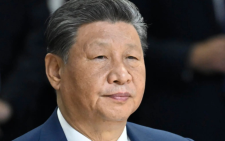Nepotism huge scar in country’s growth prospects

For decades now, Kenya’s economy has been hurtling towards self-destruction after every election cycle, in what is now becoming a tradition of economic uncertainty bred after one regime hands over to the next.
This is not only one of Kenya’s economic hurdles due to its knock-on effect on growth. Granted, elections almost always create a sense of uncertainty as they often come with changes in policies, while investors and businesses opt for a cautious stance that may delay investment decisions until the political landscape becomes clearer.
Uncertainties slap Kenya’s economy really hard this time, and as policy changes take charge the recent taxation regime, regulations, trade policies, and fiscal policies must speak well to businesses and investor sentiments.
But when new policies are seen as being unfavourable, it can lead to reduced business activity and investment, as has been the case with reactions to recent changes in taxation, the impasse in the Finance Bill 2023 is a pointer to things getting out of hand.
Being one of the most scrutinized Finance Bills in recent times, this is a pointer that Kenyans are not only awoken but also probably indicative of a population reeling from the weight of the high cost of living which will be made worse with high taxes and levies.
Much as the ongoing confrontation between the government and the opposition is to blame for dwindling economic fortunes and further fires the embers of uncertainty, and despite calling it a political showdown, let’s face it, isn’t this just a fight for resources?
If you listen keenly to top politicians in government, it is the money they are interested in. They want to decide who among themselves and their inner circle will get what from taxpayers’ money.
Some have been candid enough terming the government a company whereby “shareholders” decide how the dividends shall be shared. And in this case, the dividends is taxpayer’s money. Never mind that it is collected countrywide from every single Kenyan including those not in government.
In absolute mockery of democratic principles, soon after every election that has seen changes at the top office, Nairobi and other cities are awash with a new variant of migrants coming to do the bidding and replace the outgoing government, or is it company?
This is as past appointees face the sack, on the back of the creation of more positions to assuage loyalists in the name of change in strategy and tack, but essentially to reward the inner circle. We can call it all we want but, to shame the devil, there is no name to it other than nepotism. When it gets to devolved units it entails lining up members of certain clans or lineages for plum jobs.
Nepotism is said to have originated from the assignment of nephews to important positions by Catholic Popes and bishops and is defined as the act of granting an advantage, privilege, or position to relatives or close friends in an occupation.
Philosophers, including Aristotle and Confucious, criticized nepotism, terming it as both evil and unwise, but our political leaders don’t get it.
Nepotism is one way to breed corruption and has institutionalized the vice in government since Kenya gained independence. It not only damages national morale, but also creates rifts, breeds resentment and in most cases gives advantage to the undeserving and unqualified.
The financial architecture is such that it is the local and national governments that pull all strings in mega development projects, crowding out the private sector, is all about politics. This means that taxpayer’s money ends up very close to those in power and when they come from close proximity, Kenya will take longer to develop organically.
Kenyans tried to set up a new constitution leveraging devolved units to enable resources to trickle down through 47 county governments, but the pressure on the national government is still palpable, and to ease this five-year cycle of uncertainty that rotates around the election, clearly, something must give and more needs to be done.
Be that as it may, and with the government having managed to collect Sh2.17 trillion in taxes for the financial year 2022/2023 in decelerated tax collection, to foot Kenya’s Sh3.68 trillion budget, the Finance Bill 2023 which is still in court and as Maandamano wreaks havoc to the economy, the writing is on the wall: we need to talk.
– The writer is the Business Editor, People Daily











